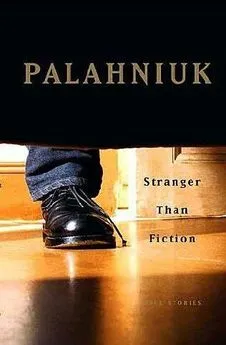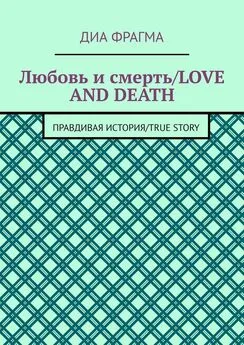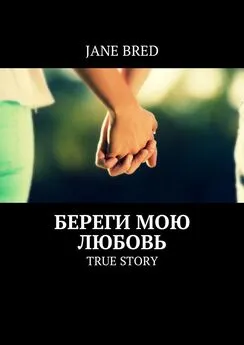Chuck Palahniuk - Stranger Than Fiction (True Stories)
- Название:Stranger Than Fiction (True Stories)
- Автор:
- Жанр:
- Издательство:неизвестно
- Год:неизвестен
- ISBN:нет данных
- Рейтинг:
- Избранное:Добавить в избранное
-
Отзывы:
-
Ваша оценка:
Chuck Palahniuk - Stranger Than Fiction (True Stories) краткое содержание
"Full of wonderful moments…Palahniuk's voice is so distinctive and intimate-he writes as though he is recounting a great story to a close friend." — Los Angeles Times
"Step into Palahniuk's dark worldview and watch for what crawls out. These stories are true to him and no one else." — The Oregonian
“One of the oddest and most oddly compelling collections to come along for some time.” —The Milwaukee Journal Sentinel
“In Chuck Palahniuk’s world, the ride is fast, often disturbing, and there is never any holding back.” —The New Orleans Times-Picayune
“Eccentric, idiosyncratic, and often entertaining.” —The Onion
"Priceless grace notes from an exceptionally droll and sharp-eyed observer." — The New York Times
“Rarely does a collection of essays continually resonate with a main theme and accumulate a weight that would lead you to call it a great book. . This is a pretty great book.” —The Seattle Times
"The book's lurid appeal rests largely on being let in on Palahniuk's secrets, the raw material for much of his fiction. . Acts that give spice to his novels are made more menacing when encountered in the real world." — Black Book
Stranger Than Fiction (True Stories) - читать онлайн бесплатно полную версию (весь текст целиком)
Интервал:
Закладка:
Nick Feldman calls it "elegant violence."
During the matches, wrestlers lie around on the edges of the mats and watch. Wearing baggy sweats. They stay together, arms around each other, or locked in practice holds, in the kind of laid-back closeness you see only in men's fashion advertising anymore. Abercrombie & Fitch or Tommy Hilfiger magazine ads. Nobody seems to need "personal space." Nobody throws off "attitude."
"You're brothers," says Justin Petersen, who at seventeen has a 4.0 GPA and runs his own Internet marketing business. "We eat together. When you have lunch, it's with the other wrestlers, and all you do is talk about how hungry you are and you can't wait until after that weigh-in so you can eat this or that. How many tenths of a pound you're going to lose in a day."
Nick Feldman says, "As a whole, wrestlers are more comfortable with themselves. There's not too many egos getting blown everywhere because that's just all smoke. It's anti-NBA, pretty much."
"Hell," says Sara Levin. "Going through hell together does it. You know that a guy in Russia is going through the same thing that this guy here is, trying to cut this much weight. They've got to do the same thing to get on the mat. There's a bond in that we're not a glamorous sport. We're not high-profile, money. You know that you're down and dirty."
Like brothers, they even look alike. Many with broken noses. Cauliflower ears. Most have a kind of pulpy, boiled look from sweating hard and landing on their faces. They're all muscled like an anatomy chart. Most seem to have heavy brows.
"In our wrestling room, we usually have the heat high," says Mike Engelmann, whose long eyelashes are in contrast to his brow. "What that does is it kind of flushes your body. You sweat all of it out. You drink more and sweat it out again, and it kind of sinks the cheeks and the eyes in, a little bit, and the forehead's all you've got left sticking out there. I kind of like the look, because it shows you're working hard."
This brotherhood thing seems to end when the ref blows his whistle.
On Saturday, despite all the years of preparation, the freestyle tournament is all over, fast.
Joe Calavitta loses and is out of the Olympics.
In Junior competition, Justin Petersen wins, and as soon as he's off the mat he throws up.
The few people in the stands cheer, Sheldon Kim's wife, Sasha, saying softly, over and over, "Go, Shel. Go, Shel. Go, Shel…"
"When you're in there, one-on-one with somebody," says Timothy O'Rourke, "you can't even hear what's going on in the stands."
O'Rourke is pinned in five seconds.
Sheldon Kim loses.
Trevor Lewis wins his first match, but loses his second.
Chris Rodrigues wins his first match.
Sheldon Kim's younger brother, Sean, loses to Rodrigues.
Mark Strickland goes against Sean Harrington, with Lee Pritts coaching from a corner. Behind in the match, Strickland calls a time-out, screaming at Pritts, "I'm going to break his ribs!" His face twisted as if he's already crying.
"The toughest guys I know cry after matches because they put so much into it," Joe Calavitta says.
Lee Pritts says, "You become so close with a workout partner that they're like your own blood, and if they go out and lose a match, lose a big match, then you've just had your heart torn out."
Strickland loses to Harrington.
"I hate to see him lose," Pritts says. "I've seen him have so much success, that when he loses, it's crushing."
Pritts wins his match.
Chris Rodrigues wins his second match.
Ken Bigley wins his first and second matches, but loses his third.
Rodrigues loses his third match and is out of the freestyle tournament.
Sean Harrington and Lee Pritts are going to the Olympic finals in Dallas.
A medic refuses to say how many muscles are pulled, bones broken, joints dislocated. All that's, he says, "highly confidential."
And the freestyle tournament is over for another four years.
That night, in a tavern, a wrestler who didn't win talks about how he was screwed over by the ref in favor of a local hero, and how USA Wrestling should import impartial refs from other areas. This wrestler talks about going to Japan to earn $20,000 in an "ultimate fighting" match, then using the money to create a joint marketing venture between topless clubs and amateur fighting events.
"Many of these guys do the ultimate fighting because it's good money," says Sara Levin. "We have Olympians who are doing it. Kevin Jackson's done it. Half of our Greco Olympic team from 96 does it. I'm not thrilled that it's the professional outlet that our guys have, but it's their only option."
The wrestler in the tavern says he can sneak the money back from Japan and not pay any taxes. He plans to avoid state laws about professional fighting by paying fighters under the table. He signs autographs for little boys. He's huge and nobody disagrees with anything he says. And he talks and talks.
The next morning, Sunday, a Marine recruiting Humvee is parked outside the Young Arena, blaring heavy-metal rock music from giant speakers as two recruiters in Marine fatigues stand nearby.
Inside the arena, the mats are laid on top of each other, double-thick, in preparation for the Greco-Roman tournament.
"A lot of people are scared of Greco," says Michael Jones. "It took me a lot of years to get into it, because I was scared of it. Because of the throws. You got some serious throws."
Phil Lanzatella suits up to wrestle, the scar from his open-heart surgery running down the center of his chest. He explains how at least the third and final heart valve tear probably happened while he was practicing Greco-Roman wrestling with Jeff Green at the Olympic Training Center in 1997.
"I weighed about two-seventy and Green's probably about two-sixty, so we totaled about five-thirty, coming through the air at I don't know how many miles an hour. Twisting and turning. And we got next to some smaller guys. That space was tight. And they put their hands and feet up," he says. "And we came out of the turn and through the air, and I landed right on the guy's foot."
Lanzatella says, "I felt it. I knew what had happened, but I didn't think much of it. I'd taken worse shots than that."
Today, there's some talk about the darker side of wrestling, how someone snuck a camera into the weigh-ins at the Midlands tournament a few years ago and the best wrestlers in the world ended up naked on the Internet. People talk about how amateur wrestlers have been stalked by obsessed fans. Called late at night. Harassed. Killed.
"I know there was a lot of talk," says Butch Wingett. "DuPont was hot for Dave Schultz for a long time."
Former college wrestler Joe Valente says, "This sport gets so much disrespect. People think it's a bunch of homo men trying to feel each other up."
As the Greco competition starts, there's no one in the stands.
Keith Wilson wins his first match, loses his second, but will still go to the Olympic finals because he's already qualified in the Nationals.
Chris Rodrigues wins a single match and will go to the Olympic finals as a Greco-Roman wrestler. The only high school student to qualify.
With his father after the match, he says, "This is just great. I'm still in high school. I get to go back home and tell all my friends I'm going to the Olympic trials in Dallas."
Phil Lanzatella wins his first match three-zero.
His second match, Phil ties zero-zero in the first period, then loses a point to his opponent in the second period and loses the match in overtime.
Already the crowd of wrestlers is thin. People are getting out, catching planes. Tomorrow is Monday and everybody has to be back at work. Sean Harrington as a painting contractor. Tyrone Davis as a water-plant operator for the town of Hempstead, New York. Phil Lanzatella as a spokesman for the company who installed his heart valve and as an advertising account rep for Time Warner.
Lanzatella sits at the far side of the tournament floor while the last consolation matches wrap up. His wrestling shoes sit a few feet away.
"I got what I deserved," he says. "I haven't been training hard enough. I have different priorities now. My wife. My kids. A job."
He says, "Last time these shoes will see action."
He says, "Maybe I'll take up golf or something."
Sheldon Kim says, "This is probably it for me. I have other priorities. I have my little girl. After this, that's it for me. I've gotten enough out of the sport to know what I've accomplished."
Wrestlers leaving "the family" to concentrate on their own.
Now almost no one is here at the Young Arena.
"Wrestling has a kind of cult following," says William R. Groves, who's driving back to Ohio State University tonight, to finish the last year on his Ph.D. in physics. "Your friends come. Your family comes. And I think a lot of people view wrestling as a boring sport."
Justin Petersen says, "It is a dying sport. I've heard some people say that boxing's a little bit worse, but wrestling's right there behind it. There's a lot of colleges dropping their wrestling programs. The high school popularity is going down. It doesn't have a lot of years left, that's what people say."
"It's dying at the collegiate level most of all," says Sean Harrington. "But I've read that at the kid level, the young children, it's more popular than ever. There's just lots of kids getting involved in wrestling because parents know what it can be to their children."
He says, "It's a hundred percent Title IX."
In the twenty-five years since the federal law that requires colleges to offer equal sports opportunities for men and women, more than 462 schools have dropped their wrestling programs.
"Title IX, that's a major factor," says Mike Engelmann. "All those colleges are getting screwed out of their wrestling programs because we have to have an equal amount of sports. I don't want to sound like a sexist or anything, but I really don't believe in it."
Even Olympic champion Kevin Jackson says, "I have a son, and he's started to wrestle a little bit, but he does tae kwon do, soccer, basketball, and I really hesitate to push him toward wrestling in any way because it is such hard work for little reward."
Still sitting near his shoes in the almost empty arena, Phil Lanzatella talks about his children, "More to the point, I'd push them to tennis or golf. Something noncontact, with lots of money."
Jackson says, "So many people around the country have wrestled, or they know someone who wrestled. They have some connection to it. We just have to do a better job of promoting our athletes so folks watching TV can make that connection."
"These guys," Engelmann says, "I'm sure all their kids are going to wrestle, too. And that's why it's not going to die. I want to have kids, and I'm not going to push it on them, but I hope they're going to want to wrestle."
Phil Lanzatella has a plane to catch, too.
"Maybe all this energy can be funneled into monetary gains," he says. He's been approached about writing a book. "Now I have the time to reflect and certainly the stories. From 1979 through today. I've been through about every aspect. Running for state legislator… going out with Mondale's daughter when we boycotted the Olympics in 80… being a part of five Olympic teams-that's never been done before. Yeah, there's a lot."
He picks up his shoes and says, "I still have to call my wife…"
"It feels so good when you stop," says high school wrestling coach Steve Knipp. "It's such a demanding thing when you're doing it that when you stop cutting weight and get to eat, you never appreciated food so much in your life. Or when you get to just sit down, you never appreciated that chair so much. Or when you get to take a drink of water, you never appreciated water so much."
Читать дальшеИнтервал:
Закладка:








